If you buy via any of our links, there will be no additional cost to you, and we will receive a tiny commission. More information is available on our Affiliate Disclosure page.

Is Merino Wool Itchy?
Is merino wool itchy? It has been praised as non-itchy and comfortable to wear directly on the skin, even by those with sensitivities. It does not have the prickly or scratchy sensation associated with coarser wool variants. Similarly, Merino wool’s crimped structure and natural elasticity contribute to its softness and suppleness, making it a popular choice for base layers, sweaters, socks, and other garments and accessories.
The topic of whether Merino wool is irritating is shared by individuals considering using this natural material for garments and accessories.
While many people connect wool with a scratchy, painful sensation, Merino wool stands out for its softness and comfort.
In this investigation, we will look into the qualities that make Merino wool a comfortable choice, busting myths about itching and identifying the aspects that contribute to its reputation as a luxurious and wearable material. Whether you’re looking for warmth, breathability, or moisture-wicking capabilities, the itchiness of Merino wool is a topic we’ll explore to assist you in making smart clothing choices.
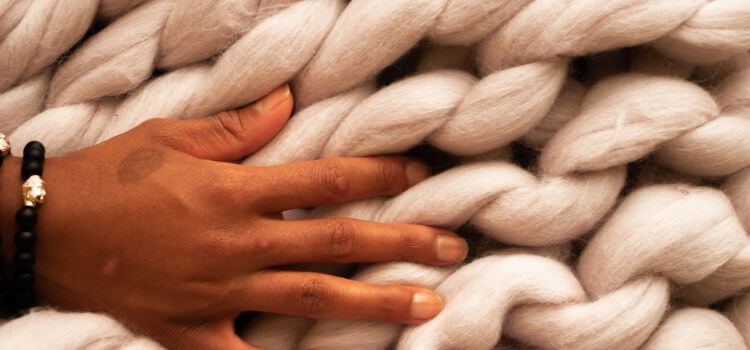
What is Merino Wool?
Merino wool is a natural fiber made from the fleece of Merino sheep, notably the Merino breed, which is noted for producing some of the world’s finest and softest wool. This sort of wool is highly valued for its luscious texture and a variety of attractive properties.
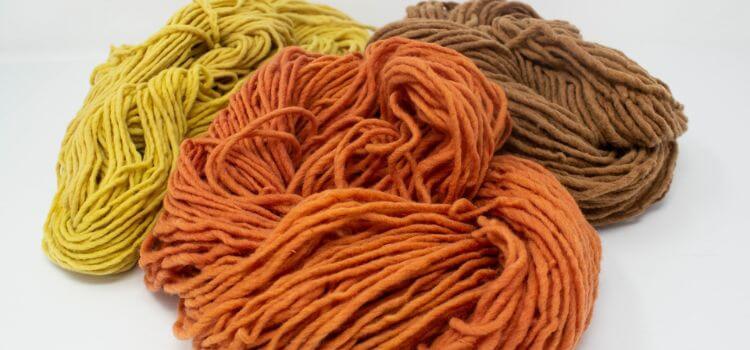
Why is it So Soft?
Because of the tiny diameter of its strands, merino wool is extraordinarily soft. Over generations, Merino sheep have been selectively bred to produce yarn with significantly thinner fibers than other wool breeds.
These finer fibers are measured in microns and can be as fine as 15-25 microns in some circumstances and much finer in others. The softer the wool, the lower the micron count.
Coarser wools from other breeds, on the other hand, may have thicker and more abrasive fibers, causing itching or discomfort when worn against the skin.
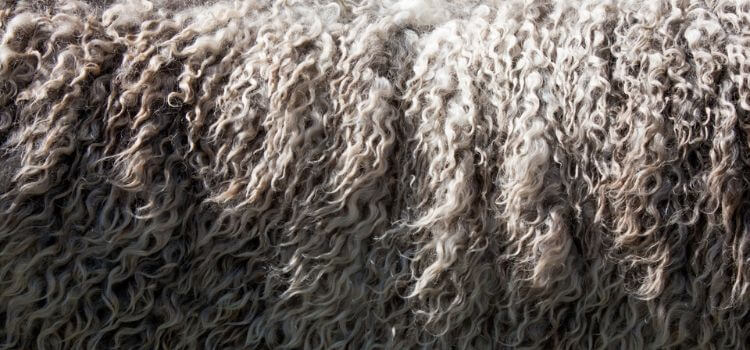
Why is Merino Wool Itchy?
When compared to coarser wool kinds, merino wool is often not considered scratchy. However, some people may still experience irritation while wearing Merino wool due to a variety of circumstances, including:
Personal Sensitivities:
Everyone’s skin is different, and some people may have skin sensitivities that make them itch more quickly when they come into contact with any sort of wool, including Merino. These sensitivity levels can differ from person to person.
Impurities:
While Merino wool is usually cleaned to remove contaminants, some residual compounds or treatments from the production process may irritate persons with sensitive skin.
The Thickness of the Fiber:
While Merino wool is noted for its fine fibers, the thickness of these threads can vary depending on the Merino sheep breed and the processing processes employed. A Merino wool garment with thicker fibers may feel slightly itchier in rare situations.
Processing and Quality:
The quality of the Merino wool and how it is prepared might have an impact on its comfort. When compared to lower-grade wool or wool that has yet to be processed correctly, high-quality, well-processed Merino wool is less likely to be itchy.
Cleaning and Maintenance:
Improper washing and handling can cause Merino wool’s texture to change, making it feel less pleasant against the skin.
It’s worth noting that the majority of people associate Merino wool with softness and comfort. Consider factors such as fiber thickness, quality, processing, and your individual skin sensitivities if you find Merino wool irritating or uncomfortable.
To reduce potential itching, wash the clothing before wearing it, using gentle detergents and following the manufacturer’s care instructions. Wearing a lightweight base layer below your Merino wool garment can also help to establish a barrier between the wool and your skin, preventing direct contact and potential irritation.
How Can I Tell if a Merino Wool Garment is Itchy?
Individual sensitivities vary; thus, determining if a Merino wool garment is irritating might be subjective. However, there are various aspects and approaches to consider when choosing the itchiness of a Merino wool garment:
Micron Size:
Look for information regarding the micron count of the clothing, which quantifies the fineness of the wool fibers. Finer and softer fibers are indicated by lower micron counts. Merino wool with a lower micron count, often fewer than 20, is thought to be very quiet and less likely to itch.
Feel and Touch:
Before purchase, if feasible, touch and feel the garment in person. Examine the fabric with your fingers to see how it feels against your skin. Most Merino wool clothes that are not scratchy should feel soft and silky to the touch.
Read Customer Reviews:
Examine online reviews from other customers who have bought and worn the same outfit. Their experiences can provide helpful information about whether the garment is irritating or comfy.
Reputation of the Brand:
Softness and comfort are more likely to be prioritized in the products of reputable Merino wool brands. Look for companies that have a history of manufacturing non-itchy Merino wool clothes.
Fabric Combinations:
To improve softness and eliminate itching, certain Merino wool clothes are combined with additional fibers such as silk or synthetic materials. Examine the garment’s makeup to discover if it has any extra fibers that contribute to comfort.
Put it On:
If you have the option to try on the garment, do so for a short length of time to see how it feels against your skin. Keep an eye out for any signs of irritation or pain.
Cleaning and Maintenance:
The itchiness of Merino wool clothing can also be affected by proper washing and upkeep. To keep the fabric supple, follow the care instructions provided by the manufacturer.
Sensitivity of the Skin:
It’s important because everyone’s sensitivities to the skin are unique. What one individual finds enjoyable may itch another slightly. Proceed with caution if you have a history of wool allergies or sensitivities, and consider completing a patch test before wearing the item extensively.
Merino wool with a lower micron count, high-quality craftsmanship, and a comfortable reputation is less likely to be scratchy. Personal comfort and preferences, on the other hand, play a significant impact; therefore, it’s critical to consider your own sensitivity as well as the specific characteristics of the clothing when analyzing its potential irritation.
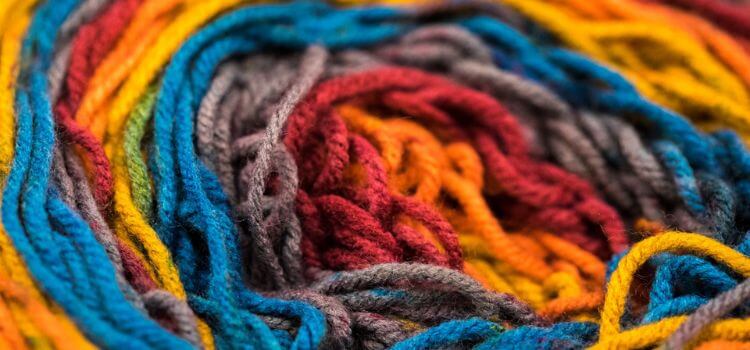
Is Extra Fine Merino Wool Itchy?
Extra fine Merino wool is not scratchy in general and is valued for its outstanding softness and comfort. It is derived from Merino sheep that have been bred specifically for its fine fibers with a reduced micron count. The finer fibers of this breed are significantly softer and smoother than the coarser fibers found in other wool breeds.
Extra fine Merino wool’s softness makes it an excellent choice for items worn directly against the skin, such as base layers, underwear, sweaters, and socks. Many people with sensitive skin prefer excellent Merino wool since it is non-itchy and comfortable.
However, keep in mind that individual sensitivities vary, and what feels good to one person may not feel comfortable to another. If you are concerned about irritation or skin sensitivities, touch and feel the fabric or try on the clothing before purchasing.
Furthermore, adhering to suitable care instructions for your extra-acceptable Merino wool items can aid in the preservation of their softness and comfort over time.

Is 100 Merino Wool Itchy?
No, most individuals do not find 100% Merino wool scratchy. Merino wool is well-known for its softness and comfort, and clothes made entirely of Merino wool are frequently selected for their non-itchy characteristics.
Because Merino wool has thin fibers that are measured in microns, it offers a smooth and delicate feel that is less prone to discomfort or itchy when worn against the skin.
Individual sensitivities vary, and some persons with sensitive skin may suffer slight pain or irritation when wearing 100% Merino wool.
When selecting garment materials, it is critical to consider your personal skin’s sensitivity and preferences.
Follow correct care guidelines for your Merino wool items to reduce any itching, and consider layering them over a lightweight, breathable base layer for enhanced comfort.
What Can I Do to Make Merino Wool Less Itchy?
Here are some suggestions to make it less uncomfortable if you have a Merino wool outfit that is somewhat itchy or if you wish to take preventive steps to ensure optimal comfort:
Before Putting On:
Irritation may be caused by leftover fibers or treatments from the manufacturing process in new Merino wool clothes. Washing the clothing before wearing it can assist in removing irritants and softening the fabric.
Use a Mild Detergent:
Use a mild, wool-specific detergent for washing Merino wool. Avoid using powerful detergents or bleach since they might harm the wool fibers and increase the risk of itching.
Hand Washing or Mild Cycle:
The most gentle approach to cleaning Merino wool is by hand. Use the delicate or wool cycle in the washing machine for less agitation and lower water temperatures.
Avoid Using Hot Water:
Hot water can shrink and roughen wool fibers, thereby aggravating irritation. When washing Merino wool, use lukewarm or cold water.
Avoid Using Fabric Softeners:
Fabric softeners can leave residues that interfere with Merino wool’s inherent suppleness. When caring for Merino wool items, it is preferable to avoid using fabric softeners.
Lay Flat to Dry:
Reshape the clothing after washing and put it flat to dry. Hanging Merino wool products should be avoided since the weight of the water might stretch the fibers and make them feel scratchy.
Properly Store:
Merino wool clothes should be stored in a cool, dry area away from direct sunlight and heat sources. Proper storing aids in the preservation of the fabric’s suppleness.
Layer on Top of a Base:
If a Merino wool garment irritates you, consider wearing it over a lightweight, breathable base layer. This forms a buffer between the wool and your skin, minimizing direct touch.
Consider Fabric Combinations:
To improve softness and comfort, some Merino wool clothes are combined with additional fibers such as silk or synthetic materials. If you are concerned about itching, look for clothing that has these mixes.
Select Lower Micron Counts:
When shopping for Merino wool, aim for brands with lower micron counts, as finer fibers are often softer and less prone to itch.
Patch Check:
If you are allergic to wool or Merino wool, conduct a patch test by wearing the item in a tiny, inconspicuous region for a short amount of time to observe how your skin responds.
Keep in mind that everyone’s sensitivities differ, and what feels somewhat uncomfortable to one person may not bother another. These recommendations will help you get the most out of your Merino wool clothes and enjoy their numerous advantages while minimizing itching.
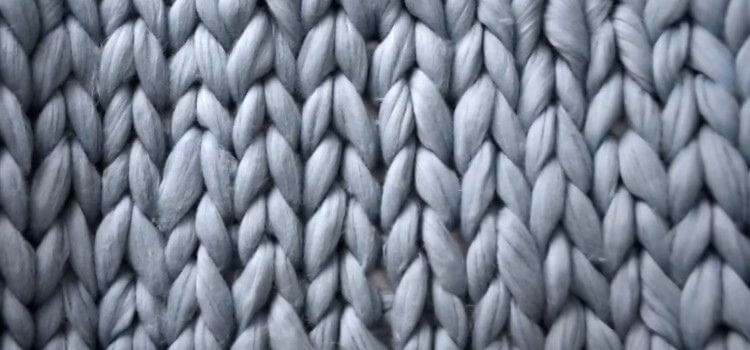
Does Merino Wool Get Less Itchy After Washing?
Yes, Merino wool clothing typically becomes less itchy after washing.
There are several reasons behind this, which involve:
Removing Residues:
New Merino wool clothes may include leftover ingredients or treatments from the manufacturing process that cause itching. Washing the clothing aids in the removal of these irritants, resulting in a cleaner and more pleasant fabric.
Softer Fibers:
Washing softens wool fibers by relaxing and making them more flexible. This can result in a smoother texture that is less prone to irritate the skin.
Impurities are Removed:
Washing also aids in the removal of any pollutants or particles that may have become trapped in the fibers, increasing the comfort of the garment.
Relaxation of the Fabric:
Gentle agitation and moisture while washing can help the cloth relax and adhere to your body’s contour, decreasing friction and itching.
Follow the care instructions supplied by the manufacturer to enhance the softness and comfort of your Merino wool clothing. Use a light wool detergent and wash the clothing in lukewarm or cold water.
Hot water and strong detergents should be avoided since they might damage the wool fibers and impair their suppleness.
Reshape the garment after washing and put it flat to dry since hanging it might stretch the fibers. When dried, your Merino wool clothing should feel softer and less prone to itch or cause pain.
Is Merino Wool Less Itchy than Cashmere?
Merino wool is less irritating than cashmere, especially when high-quality Merino wool is compared to high-quality cashmere. Here are a few reasons why Merino wool is said to be less itchy:
The Thickness of the Fiber:
When compared to cashmere, merino wool has finer fibers. Merino wool fiber diameter is measured in microns and can be as small as 15-25 microns or even finer in some situations.
Finer fibers are softer and less prone to irritate the skin. Cashmere fibers are fine as well, although their thickness varies, and some lower-quality cashmere may feel somewhat rougher.
Processing and Breeding:
Merino sheep have been deliberately bred for fine, silky wool for years. This breeding strategy prioritizes fiber quality, resulting in softer material. Furthermore, Merino wool is frequently thoroughly treated to keep its suppleness.
Texture and Structure:
Merino wool’s crimped structure and inherent suppleness contribute to its soft and silky feel, making it pleasant to wear against the skin. Cashmere has a smooth texture as well, but the feeling varies depending on the fiber’s quality and processing.
Quality and Purity:
Impurities or scratchy fibers that induce itching are less likely to be found in high-quality Merino wool. Similarly, fine cashmere is valued for its purity and suppleness.
Yet individual sensitivities can vary, and some people may prefer one material over the other based on their personal skin type and comfort level.
Merino wool and cashmere are both recognized for their sumptuous and comfy properties, and many people appreciate their softness and absence of itching.
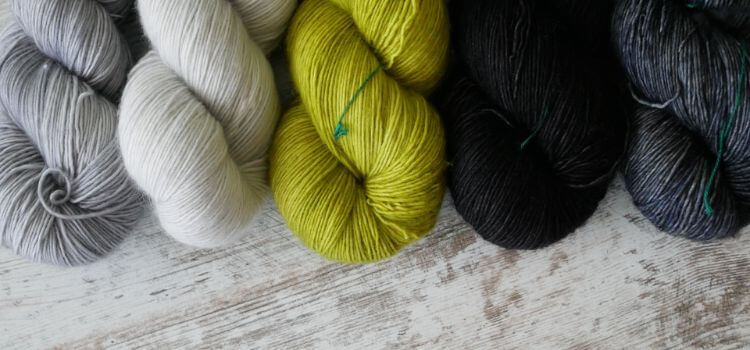
Are There Other Types of Wool That Are Not Itchy?
Yes, specific varieties of wool are noted for being less irritating, if not non-itchy, as compared to typical, coarser wool.
Because of their softness and comfort, these wools are frequently used for clothes and accessories that come into direct touch with the skin. Wool kinds that are non-irritating or less itchy include:
Wool Merino:
Merino wool, as has already been said, is recognized for its fine fibers, which are significantly thinner than those of many other wool breeds. When worn on the skin, its tiny diameter adds to its smoothness and absence of itching.
Cashmere:
Cashmere wool is made from the cashmere goat’s silky undercoat. It is well-known for its extraordinary softness and sumptuous feel. Cashmere clothing of good quality are often non-itchy and highly valued for their comfort.
Alpaca:
Alpaca wool is derived from the fleece of alpacas, which produces a softer, less prickly fiber than other wool-bearing animals. This is famous for its soft feel and warmth.
Angora:
Angora rabbits are used to produce Angora wool. Its smooth and soft texture makes it non-itchy, ideal for a variety of clothes and accessories.
Lambswool:
Lambswool is obtained from lambs’ initial shearing and is softer and less coarse than wool from older sheep. It is frequently used in knitwear and is considered soft against the skin.
Pima Cotton:
Pima cotton, while not a form of wool, is a long-staple cotton recognized for its softness and resilience. This clothing is comfy to wear and is frequently selected since they are non-itchy.
Bamboo:
Bamboo-derived materials may be smooth and easy to wear, such as bamboo viscose or bamboo cotton mixes. They are not typical wools, but they are breathable and moisture-wicking.
Silk Combinations:
Wool combined with silk may provide a non-itchy fabric that blends the warmth of wool with the softness and smoothness of silk.
Fiber from Milk:
Some textiles contain milk protein fiber, which has a smooth feel and is non-itchy. Casein, a protein found in milk, is used to make these textiles.
It’s crucial to remember that the softness and itchiness of wool might vary depending on factors, including the processing method, fiber length, and individual sensitivity. When choosing woolen items, especially if you have itching issues, it is best to touch and feel the material or read product descriptions and reviews to determine their comfort level.
Some Important FAQs for “Is Merino Wool Itchy?”
Does Merino Wool Itch?
No, because Merino wool is noted for its softness and comfort, it is a non-itchy alternative for the majority of individuals. Its tiny fibers and distinct structure help to explain its absence of itching.
Why is Merino Wool not Itchy?
Merino wool is not irritating since its fibers are finer than coarser wool. These finer strands are measured in microns and produce a smooth, soft feel on the skin.
Can Merino Wool Be Itchy for Some Individuals?
Individual sensitivities to Merino wool might vary, but it is typically not irritating. Wool allergies or severe sensitivity may cause some people to find any form of thread uncomfortable.
Is it Common for People to Find Merino Wool Itchy?
People are less likely to find Merino wool irritating than coarser wool kinds. Merino wool is famous due to its comfort and suppleness.
Are there Specific Merino Wool Products that are More Likely to be Itchy?
Itchiness may be influenced by a variety of factors, including processing technique and garment structure. High-quality Merino wool items, on the other hand, are often designed for comfort and should be smooth.
How Can I Tell if a Merino Wool Garment Will be Itchy for Me?
Consider the micron count (lower is preferable), the brand’s reputation, fabric mixes, and personal sensitivities when assessing possible irritation. If in doubt, try it on or read reviews from other users.
Can I Make a Merino Wool Garment Less Itchy?
Follow care recommendations, wash the clothing before wearing it, and select fabric blends that promote softness to prevent potential irritation.
Is it possible to have an Allergic Reaction to Merino Wool?
While allergic responses to particular proteins in wool are uncommon, some people may have them. If you feel you have an allergy, you should seek medical attention.
Is Merino Wool Suitable for Sensitive Skin?
Because of its softness and lack of itching, merino wool is frequently advised for those with sensitive skin. For this reason, it is widely utilized in foundation layers.
Can I Wear Merino Wool Directly Against my Skin Without Itching?
Yes, many individuals can wear Merino wool directly on their skin without feeling itchy or uncomfortable. It is frequently used for next-to-skin items such as undergarments and base layers.
Is Merino Wool Itchier than Regular Wool?
No, in general, Merino wool is less irritating than ordinary or coarser thread. Its tiny fibers and delicate feel make it a favorite among those looking for comfort.
What Causes Wool to be Itchy, and How Does Merino Wool Avoid this Issue?
Wool may be irritating because it has coarse fibers that can irritate the skin. Merino wool, on the other hand, has finer and smoother strands that reduce itching.
Can I wear Merino wool if I have Sensitive or Eczema-Prone Skin?
Merino wool is a popular choice for people with sensitive or eczema-prone skin since it is soft and non-irritating. It is frequently advised for people who have sensitive skin.
Are There Any Tips for Preventing Itchiness When Wearing Merino Wool?
Wash new Merino wool items before using them to avoid irritation. Use light detergents and follow care instructions. Layering with a lightweight base layer can also reduce direct skin contact.
Can Children and Infants Wear Merino Wool Without Experiencing Itchiness?
Because of its softness and comfort, merino wool is frequently used for children’s clothes, particularly newborn wear. Individual sensitivities differ, so keep an eye on how your kid reacts to Merino.
In Conclusion
Merino wool is an outstanding natural material noted for its softness and suppleness. Contrary to popular belief, Merino wool is famous for its fine fibers, which provide a smooth and delicate touch on the skin. Because of its non-itchy character, it is frequently used for garments worn directly against the skin, such as base layers, sweaters, and socks.
While individual sensitivities vary, Merino wool has a well-deserved reputation for softness, making it a popular choice for people seeking both warmth and comfort. Proper maintenance and cleaning may improve its softness even more, giving a comfortable wearing experience.
When shopping for Merino wool products, choose high-quality items and follow care recommendations to enhance comfort and lifespan. Overall, Merino wool exemplifies the balance of nature’s fibers, providing both warmth and luscious softness in a single excellent substance.

